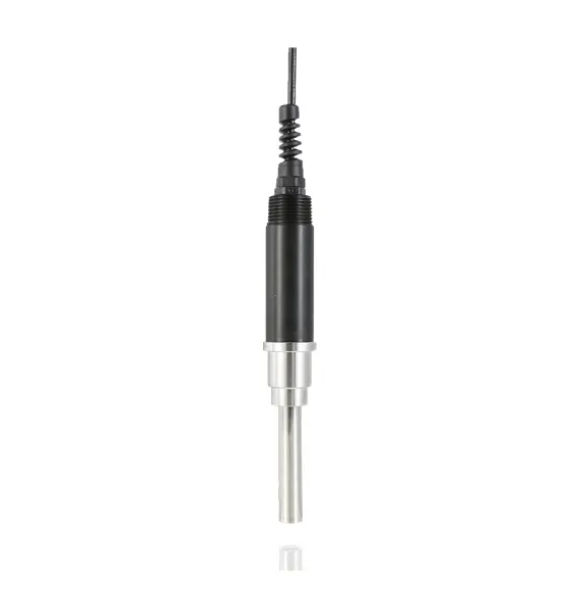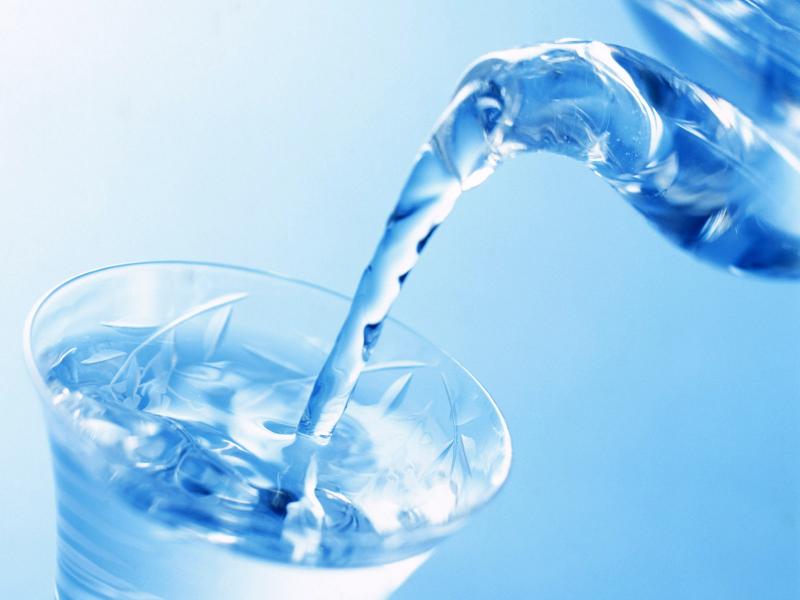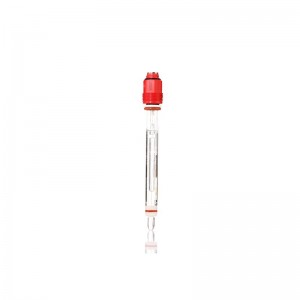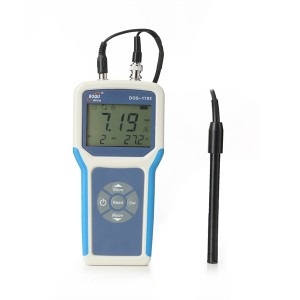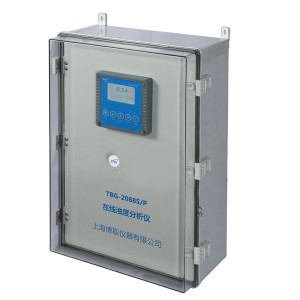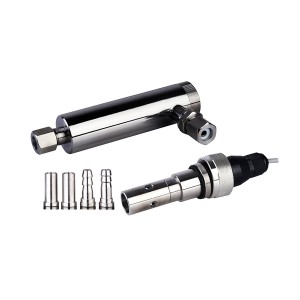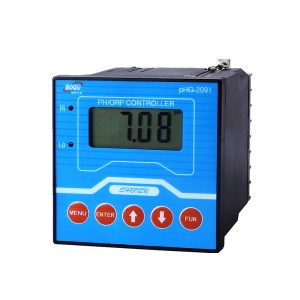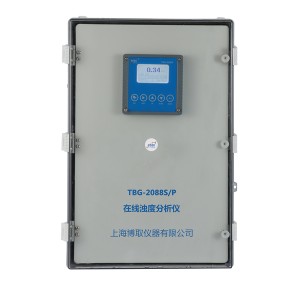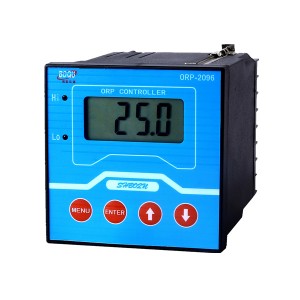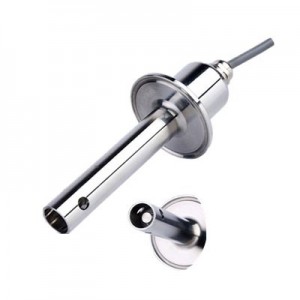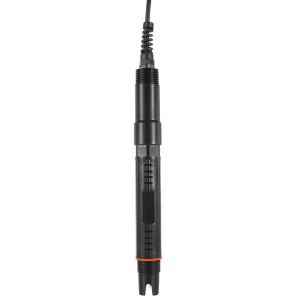In today’s fast-paced world, efficiency is a key factor in every aspect of our lives. From industrial processes to environmental monitoring, finding ways to improve efficiency has become paramount. One essential tool that has redefined efficiency in water quality testing is the conductivity probe.
This small but powerful instrument offers numerous advantages that make it indispensable for businesses, the environment, and the future of water quality management.
In this blog post, we will explore the various roles and benefits of a conductivity probe, shedding light on its significance from multiple perspectives.
What Is A Conductivity Probe?
The conductivity probe in the digital age can not only be used for water quality testing but also bring many innumerable benefits. Here we take BOQU’s conductivity probe as an example.
The BH-485 series is an advanced online conductivity electrode that offers a range of features and benefits for efficient and accurate measurement.
- Real-Time Temperature Compensation:
Equipped with a built-in temperature sensor, this electrode enables real-time temperature compensation, ensuring accurate readings even in varying temperature conditions.
- RS485 Signal Output:
The electrode utilizes RS485 signal output, which provides a strong anti-interference capability. It allows for signal transmission over long distances, reaching up to 500 meters without compromising data integrity.
- Modbus RTU (485) Communication Protocol:
With the use of the standard Modbus RTU (485) communication protocol, the electrode can seamlessly integrate into existing systems, making data transmission and integration hassle-free.
The above characteristics, as well as BOQU’s high-tech support, make it an important part of IoT water quality testing in many sewage plants or drinking water companies. Through the sensitive sensing probe, the operator can obtain the latest water quality data fluctuation from the analysis instrument.
The intelligently analyzed data can also be updated on the mobile phone or computer in real time so that the person in charge can query important information more clearly.
I. Boosting Efficiency For Businesses:
The use of a conductivity probe in water quality testing has revolutionized the way businesses operate, providing several key advantages that boost efficiency across various industries.
Real-Time Monitoring and Analysis
One of the significant advantages of a conductivity probe is its ability to provide real-time monitoring and analysis of water quality parameters. Traditional methods often involved collecting water samples and sending them to laboratories for testing, which could be time-consuming and costly.
With a conductivity probe, businesses can obtain instantaneous results, enabling prompt decision-making and response to any water quality issues that may arise.
Rapid Detection of Contamination
Conductivity probes excel in detecting contamination in water sources. By measuring the electrical conductivity of a solution, they can quickly identify changes in the concentration of dissolved ions, which may indicate the presence of pollutants or contaminants.
This early detection allows businesses to take immediate action, preventing potential harm to both the environment and human health.
Enhanced Process Control
For industries that rely on water as a critical component of their processes, maintaining optimal water quality is essential. Conductivity probes offer a valuable tool for process control, enabling businesses to monitor and adjust water quality parameters in real time.
This capability ensures consistent product quality, reduces waste, and improves overall operational efficiency.
II. Preserving The Environment:
The significance of conductivity probes extends beyond the realm of businesses, as they play a vital role in preserving the environment and safeguarding natural water resources.
Early Warning Systems
Conductivity probes can serve as effective early warning systems for environmental monitoring. By continuously measuring conductivity levels in rivers, lakes, and other water bodies, they can detect changes that may indicate pollution or the presence of harmful substances.
This early warning enables prompt action to mitigate the impact on aquatic ecosystems and protect the delicate balance of the environment.
Ecosystem Health Assessment
Understanding the health of aquatic ecosystems is crucial for environmental conservation efforts. Conductivity probes provide valuable data that aids in ecosystem health assessment.
By measuring conductivity, scientists can infer important information about salinity, nutrient levels, and overall water quality, helping them make informed decisions regarding conservation strategies and habitat management.
Sustainable Resource Management
Water resources are finite, and their sustainable management is of utmost importance. Conductivity probes assist in optimizing water usage and conservation efforts.
By monitoring conductivity levels, businesses and water authorities can identify areas of excessive water usage, leakage, or contamination, enabling targeted interventions to reduce waste and preserve this precious resource for future generations.
III. Paving The Way For The Future:
As technology continues to advance, conductivity probes are evolving and paving the way for the future of water quality management. Their ongoing development offers promising opportunities for further efficiency gains and scientific advancements.
Miniaturization and Portability
Advancements in conductivity probe technology have led to miniaturization and increased portability. Smaller, handheld probes allow for ease of use in the field, enabling researchers and environmental professionals to conduct on-site monitoring in remote or hard-to-reach locations.
This portability opens up new possibilities for comprehensive water quality assessments and faster response times.
Integration with IoT and Automation
The integration of conductivity probes with the Internet of Things (IoT) and automation systems has immense potential for revolutionizing water quality management. Conductivity probes can be connected to networks, enabling real-time data transmission, remote monitoring, and automated responses.
This integration streamlines the entire process, reduces human error, and facilitates proactive decision-making in managing water resources effectively.
Advanced-Data Analysis and Predictive Models
The vast amount of data collected by conductivity probes presents an opportunity for advanced data analysis and the development of predictive models. By leveraging machine learning and artificial intelligence, researchers can gain deeper insights into water quality trends, identify patterns, and predict potential issues.
This proactive approach empowers stakeholders to take preventive measures, ensuring a more sustainable and resilient water management system.
Final words:
The conductivity probe has redefined efficiency in water quality testing, offering advantages that extend to businesses, the environment, and the future of water resource management.
From real-time monitoring and analysis for businesses to environmental preservation and future advancements, the benefits of conductivity probes are undeniable.
As technology continues to advance, these remarkable instruments will play an increasingly crucial role in ensuring the efficient and sustainable management of our most precious resource—water.
By harnessing the power of conductivity probes, we can make significant strides in creating a cleaner, healthier, and more efficient future for all.
Post time: May-18-2023

